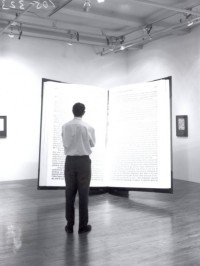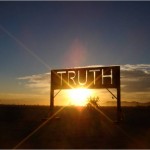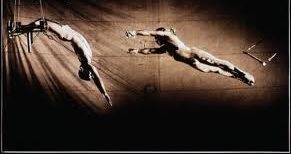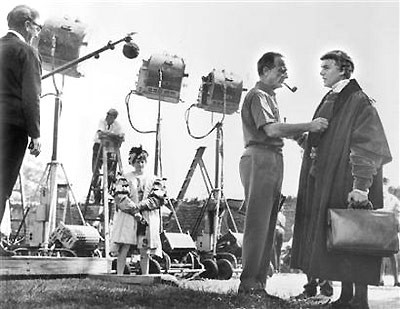 I have been behind – or barely keeping up – on several important fronts. Here is the brief explanation I sent a friend some weeks ago, shortly after Abigail broke a hip, minutes before we were to present papers at the NE AAR:
I have been behind – or barely keeping up – on several important fronts. Here is the brief explanation I sent a friend some weeks ago, shortly after Abigail broke a hip, minutes before we were to present papers at the NE AAR:
I have been overwhelmed since the first May 2 mishap. We had a second episode, after being released from Acute Rehab, when, while at home doing rehab with occasional helpers, Abigail’s was extremely weak. They measured her blood pressure: 60/40! I have never heard of so low a blood pressure. There was another drama, which I will spare you, that delayed our calling 911, but when we did, they could barely believe that she was sitting up, able to talk to them. They immediately put in two pints of blood and another pint a day or two later. They were not sure of the source of the bleeding but it turned out to be a bleeding ulcer. They cauterized it. That didn’t quite work, so they did it again. She is now at home and has resumed rehab exercises that may last for many weeks. For me, the impact has been as much emotional as well as being somewhat run ragged. When I fell in love, I was aware that I had a new vulnerability. I have learned to live alone – after a divorce, that can be a relief – but, having found my true love, it would be immeasurably harder to go on alone. That concern has taken the stuffing out of me.
As I now reflect on events, I recall Abigail’s asking the nurses, in a stream of medical queries, “tell me, why do bad things happen to good people?” They smiled and shook their heads. Years ago, she had asked her friend, the Jewish philosopher Michael Wyschogrod. His answer: “Our people on working on it and hope to have an answer soon.” Although, in God: An Autobiography and in Radically Personal, I find clues, this is and remains the unanswerable question.
June 25, 2025
It was nice seeing my granddaughter, Kelsea, in San Diego. She was full of reflections on her first year at college. She loves her sisters in the sorority. They have helped her get through the troubled times – events like a car crash in the midnight fog as well as the pressures and down days that are part of college life. She described the accident, which totaled her car, and then asked, “What did I learn from the experience?”
She seems to ask herself that question after every significant event, a remarkably thoughtful way to live. She tended to blame herself for the accident, even though it was really just one of those things that happen when cars can’t see each other. She tends to blame herself for everything, she said, and this was an opportunity to counter that tendency.
Her sisters were really there for her, for which she was deeply appreciative, and this made her want to be present for them and other friends when they had trouble. I don’t remember being thoughtful in this way when I was her age. Life is more complicated these days, and I guess young people have to engage in more complicated lifemanship. If Kelsea is an example, some are succeeding.
 Abigail and I visited my daughter Claire and her family in San Diego. She has married a guy, Dave, a solid citizen with whom she is much happier than when she was single and raising a child alone. Claire and her husband now have a second child, the seven-year-old Alex.
Abigail and I visited my daughter Claire and her family in San Diego. She has married a guy, Dave, a solid citizen with whom she is much happier than when she was single and raising a child alone. Claire and her husband now have a second child, the seven-year-old Alex.
He is willful and irrepressible, and has more energy than he well knows what to do with. They have done the right thing – they have him in Cub scouts, Little League, racing little hand-made cars, designing vast buildings on his computer, and I forget what else. All that energy is being routed to power up a purposeful life. Good for him, and good for them!
July 29. 2016
 The Kirkus review is finally out. The reviewer finds God: An Autobiography to be “a captivating religious dialogue for the modern age,” written in “an immensely readable prose.” Wow! I am pleased not only at the high marks, but at the careful attention the reviewer gave to reading the book and writing about it concisely and elegantly.
The Kirkus review is finally out. The reviewer finds God: An Autobiography to be “a captivating religious dialogue for the modern age,” written in “an immensely readable prose.” Wow! I am pleased not only at the high marks, but at the careful attention the reviewer gave to reading the book and writing about it concisely and elegantly.
Like many reviewers, this one tends to assume that I am the author of the God who speaks to me: “His portrait of God is a remarkable dramatic construct …” Another favorable reviewer calls it a “non-fiction novel.” In fact, the events related in the book actually happened.
God’s words are literally what I was told in prayer. I do not fault others for assuming that this is a literary device of some sort. How would they know it is not? And, in some ways, the distinction may not matter. But, for me personally, it is crucial. I would not have given up a great career to write a book about my own spiritual philosophy (which I didn’t even have).
I have followed the guidance to do so because I believe it comes from a higher source. And, in part because of what God tells me in this book, I have come to believe that everyone who pays attention has cues, prompts, intuitions, and epiphanies from that higher source. I hope that my experience will help readers become more open to their own. Read Review : CLICK HERE
July 24, 2016

When Abigail and I were in Phoenix, the sun baked down at slightly over 100 degrees. Residents, who enjoy the illusion that this desert is habitable, take the summer heat as a feature not a glitch. But, as we were leaving, there were warnings for the next day that it was going to get REALLY hot, well over 110.
Just standing in the sun with an uncovered head too long would be life threatening. Yet this is now one of the ten major metropolitan areas. The world made possible by irrigation and air-conditioning.
July 19, 2016
 A few months ago, I was at the drugstore. I had a prescription and they had the medication. But they couldn’t give it to me. The computer was down. I could have dropped dead waiting. There is a great old movie, made by Orson Welles, called “The Magnificent Ambersons.”
A few months ago, I was at the drugstore. I had a prescription and they had the medication. But they couldn’t give it to me. The computer was down. I could have dropped dead waiting. There is a great old movie, made by Orson Welles, called “The Magnificent Ambersons.”
The film opens with the narrator explaining, as we see and hear horse-drawn sleighs at Christmastime, the temporal setting. Our story takes place before all these speedy devices (such as the automobile that is about to make its appearance, driven by a very enthusiastic young man) and people had plenty of time.
These days, people count time by the seconds? What’s wrong with this picture?
July 12, 1016
 Has something gone wrong with us? We landed in California, tired from airplanes, Arizona highways, and the bright lights of publicity, so we decided on an easy schedule the next day to refresh and muse. We just needed to contact people to confirm next week’s various gettings-together, including with Dad’s caregivers and his lawyer.
Has something gone wrong with us? We landed in California, tired from airplanes, Arizona highways, and the bright lights of publicity, so we decided on an easy schedule the next day to refresh and muse. We just needed to contact people to confirm next week’s various gettings-together, including with Dad’s caregivers and his lawyer.
Then disaster. No internet! Then internet, but no email. Would Abigail be able to do send her weekly column? Frantic calls to our techno-helpers back home. No responses. We don’t even have phone numbers for some of the people (who calls, anymore?). Come evening, a helper calls back. Try this. Try that.
What is our password? It’s by my desk back home. Finally, the helper – the wonderful Sharon Brebner – cracks the code. We can breathe again. Life moves on. We are connected to the world.
July 6, 2016
 When we headed for Arizona, I asked Pat McMahon, host of the TV program we would be doing, who else I should get to know while I was in Phoenix. He put me in touch with Anne Taylor of the Arizona Interfaith Movement.
When we headed for Arizona, I asked Pat McMahon, host of the TV program we would be doing, who else I should get to know while I was in Phoenix. He put me in touch with Anne Taylor of the Arizona Interfaith Movement.
The ARIFM includes 22 different faith groups, more than I even knew existed in this barren state, whose main residents until recently had been cactus and rock. It turned out that their council was holding its last meeting of the year the evening we would be in town, and Anne squeezed me into the program.
What an amazing group it was! People from all these traditions who have been meeting for 25 years and learning how to get along and work on projects together. But something deeper was taking place.
They had not merely come to “understand” one another. They were drawing spiritual insight from one another’s different perspectives. Each was learning that God – the divine reality by whatever name – is larger than a single tradition, and yet, amazingly, is still the God one has always known, in more familiar terms, in one’s own tradition.
June 30, 2016
 Another first: Abigail and me on TV. Pat McMahon is a broadcasting legend in Arizona – an award-winner in news, comedy, and talk shows, now host of a weekly radio show called “God talk” and a daily TV show called “Morning Scramble.” He did my first radio interview ever, and there was never a better one.
Another first: Abigail and me on TV. Pat McMahon is a broadcasting legend in Arizona – an award-winner in news, comedy, and talk shows, now host of a weekly radio show called “God talk” and a daily TV show called “Morning Scramble.” He did my first radio interview ever, and there was never a better one.
On radio, I had an hour; on TV, only five and a half minutes. Pat did a great intro: “This is a show where we bring on top names, and what name could be better than God? And who better to talk to than the guy who has a two-way line to God?” I said a little about the book, up to when the Voice announced, “I am God,” and then Pat asked Abigail, “Why did God pick your husband?”
An interesting question, one no one had asked before. “I have known two truthful people,” she answered. “One was my father and the other is Jerry.” She went on from there. That sounded good to me, and to Pat too, I think.
June 26, 2016

Another first for me: speaking at a church. Interestingly, an “interfaith” church. (I didn’t know they had those.) Members had already been told the gist of the book: it is about what God told the author in prayer. I chatted with this one and that one before the service began. “God talks to me all the time,” a wonderfully sincere woman said.
“It can be just the light falling on the leaf in a certain way.” Just so. Another taught me how to hug “heart-to-heart.” I dropped the part of my talk designed to mitigate skepticism. These folks would be open.
There is much in the book that would have fit the 16 principles posted on their website, but when I prayed beforehand, I was told, “Tell them what they don’t know.” So I spoke to the unasked question: What is all this – interactions with human beings and all – like for God? We ask God to understand our every hurt, but we show little empathy for divine suffering. And God surely suffers.
I was right. They were open-minded and open-hearted. Many questions came, some penetrating to rather complex issues in the book, issues I was not quite prepared to explicate. I had not fully come to terms with them myself, I suppose. That’s what meaningful discourse is like.
June 22, 2016
 Gary Goldberg has had a fascinating spiritual journey. He is the host of “In the Spirit” on WPRI in upstate New York. His father was Jewish and his mother Catholic. To marry her, he had to agree to raise the kids Catholic. So, like the wick dipped in tallow repeatedly to make a candle, young Gary participated in all the liturgies, training, and acculturation that belongs to that tradition. All the time, he says, he was seeking God, searching for a personal relationship with the divine, and he did not find it there.
Gary Goldberg has had a fascinating spiritual journey. He is the host of “In the Spirit” on WPRI in upstate New York. His father was Jewish and his mother Catholic. To marry her, he had to agree to raise the kids Catholic. So, like the wick dipped in tallow repeatedly to make a candle, young Gary participated in all the liturgies, training, and acculturation that belongs to that tradition. All the time, he says, he was seeking God, searching for a personal relationship with the divine, and he did not find it there.
Today he best relates to the divine through sitar music, meditation, and the bhakti tradition of Krishna, whom he loves. But, like the best finders, he remains a seeker, always looking for a deeper, more encompassing life with God. I have another friend, raised Catholic who remains so. She does find God there. But, again like the best finders, she is still a seeker, and tells all her friends about God: An Autobiography. Some people find God in the faith they were born into. Some find God elsewhere, sometimes “anywhere but” their childhood religion. Neither group has the advantage over the other. God is happy to meet us where we find Him.
June 16, 2016

Whether, when it is seen from the other side, death is a tragedy we do not know. But, from this side, it certainly is. In a recent talk, I was asked by a woman in the audience about our loved ones who have passed away. Are they okay? It happened to be a lady I know – a widow whose husband passed away more than ten years ago. One day I asked her if it had gotten better, any easier to live with. No, she said, it gets worse. Like a homesickness, the yearning grows stronger with time.
Now she was asking this question from the audience. What could I tell her? How do I know? All I could report is that I was given three visions of the afterlife. They are not identical, and I left all three in the book – how could I adjudicate between them? I think they can be reconciled, but I leave that to readers to decide. However, I think I could say one thing about all three visions: Those who have passed before us are okay.
June 13, 2016

My dad doesn’t remember what he did yesterday, he is full of stories from earlier in life. I have heard them often and sometimes, in the retelling, I learn something new. When he was 19, he met my mother at a dance. She was really cute but looked too young. She was nearly 18, “close enough.” Three weeks later, he asked her to marry him. She agreed, and he thought to ask her father. “What if he says no,” he asked her. “Then I won’t do it.” “So I won’t ask him.”
They went off to find the preacher. He had already gone to bed but his wife waked him, and he performed the ceremony. Afterwards, he and mom started “messing around,” as he puts it, and it was time to “get a room.” Dad had always been what they called “wild,” risking illegality and dispute. But he stopped to make a phone call. Her parents would worry. They didn’t have a phone so he called the gas station across the street. “Please go over and tell Mrs. Young that her daughter is married.”
June 10, 2016
 Since the God book is the first book I have ever written, I keep having first-ever experiences. I was invited to do what they call a “reading” of a portion of the book. Most of the readers and audience were poets, both known and unknown. Much of my book is intellectual – I put question after question to God.
Since the God book is the first book I have ever written, I keep having first-ever experiences. I was invited to do what they call a “reading” of a portion of the book. Most of the readers and audience were poets, both known and unknown. Much of my book is intellectual – I put question after question to God.
But poets, while thoughtful, work from their feelings and intuitions. I read several short sections from the God book, and included the passage about how my personal feelings of shame from childhood, which I wore on my forehead in the form of a prominent crimson birthmark, a mark of Cain. I still cannot read that chapter and revisit those feelings without a hint of tears. It was somewhat painful, almost embarrassing, to read out loud, but the good poets, sweet souls themselves, nodded as I read.
June 5, 2016
 I gave my first-ever talk at a church. As I report in the God book, I was told not to affiliate with any particular religion or denomination. The content of the book itself seems to be Christian-plus, but also Jewish-plus, Hindu-plus, and so on. It is a conversation with “God of Israel” and also the “God of All.” The “plus” makes people nervous, since religions usually claim to be not just the truth, but the only truth. They see their rivals not as only mistaken in this and that, but as paving the highway to perdition. However, my experience has not confirmed that worry. Evangelicals, mainstream Protestants, and Catholics (a priest, no less) have had me on their radio programs. What God has told me relates directly to their concerns as well, and they have often invited me back. Even to skeptics and atheists, to my surprise, find something in the God book that speaks to them. I looked forward to this first churchly talk, and will report on it shortly.
I gave my first-ever talk at a church. As I report in the God book, I was told not to affiliate with any particular religion or denomination. The content of the book itself seems to be Christian-plus, but also Jewish-plus, Hindu-plus, and so on. It is a conversation with “God of Israel” and also the “God of All.” The “plus” makes people nervous, since religions usually claim to be not just the truth, but the only truth. They see their rivals not as only mistaken in this and that, but as paving the highway to perdition. However, my experience has not confirmed that worry. Evangelicals, mainstream Protestants, and Catholics (a priest, no less) have had me on their radio programs. What God has told me relates directly to their concerns as well, and they have often invited me back. Even to skeptics and atheists, to my surprise, find something in the God book that speaks to them. I looked forward to this first churchly talk, and will report on it shortly.
June 1, 2016
 My dad just turned 95. He lives independently in California – 3000 miles away. I called to wish him a happy birthday. “Congratulations, Dad. How does it feel to be that old?” “I don’t feel a day over 94,” he replied. He is pain-free and on his feet. We will visit him soon, and I will go to the mall to walk with him and his buddies, and then to Tai Chi where we have the pleasure of seeing the shapely leader, Pat, whom we call simply the Pretty Lady. Dad still has an eye for the ladies. George, his financial advisor, called and told me that Dad needed a new calendar. I sent him THE special issue of Sports Illustrated. “Thanks,” Dad said, “I have enough beautiful women to last the rest of my life.” Which, hopefully, has a long way to go still.
My dad just turned 95. He lives independently in California – 3000 miles away. I called to wish him a happy birthday. “Congratulations, Dad. How does it feel to be that old?” “I don’t feel a day over 94,” he replied. He is pain-free and on his feet. We will visit him soon, and I will go to the mall to walk with him and his buddies, and then to Tai Chi where we have the pleasure of seeing the shapely leader, Pat, whom we call simply the Pretty Lady. Dad still has an eye for the ladies. George, his financial advisor, called and told me that Dad needed a new calendar. I sent him THE special issue of Sports Illustrated. “Thanks,” Dad said, “I have enough beautiful women to last the rest of my life.” Which, hopefully, has a long way to go still.
May 29, 2016
 Abigail and I saw “The Young Messiah.” It is one of several religious-themed movies that have been making the theatre, some good, some not so good. This one is based on a novel by Anne Rice – yes, the vampire novelist, but recently she has written two or three Bible-oriented movies.
Abigail and I saw “The Young Messiah.” It is one of several religious-themed movies that have been making the theatre, some good, some not so good. This one is based on a novel by Anne Rice – yes, the vampire novelist, but recently she has written two or three Bible-oriented movies.
We know very little of Jesus’ childhood. At the age of 12, he is reported to have been found expounding scripture, to the amazement of his elders in the synagogue. The movie draws from stories in apocryphal literature that do not have scriptural standing but fill in missing pieces, real or speculative, of Jesus’ story.
Imagine, if you can, what it was like to be Jesus, put yourself in his sandals, and ask yourself: What is it like to be born divine, as son of God (however your theology defines that)? As a one-year old, do you know you are God? That doesn’t quite sound right. Does it come to you much later, in a single stroke, while, for example, being dipped in the river by John the Baptist? Or, as this movie speculates, do you begin to notice that you are not quite like the other kids. You seem to have wisdom beyond your years and a soothing, even healing, touch. That is closer to the version I received, which is reported in the book. This slow dawning of divinity underscores the human side of Jesus, which is hard to keep in mind when thinking about so ethereal a figure. But, if you think about it, this simple humanity of Jesus is probably essential to his ability to connect us to his Father, whom he addressed in the familiar way, as abba, best translated as “papa.” The movie nicely shows us this side of the young Jesus.
May 25, 2016
 We watched “Downton Abbey,” the final season. People have told us that, when it is over, you miss it as if you and they have suddenly moved away, never to see each other again. Abigail and I were wondering what gave it that grip on its viewers. It is, of course, well-written, staged, and acted. But that is just the label on the box; what are the actual ingredients? It attaches us to the extent that the characters are attached to one another — Bates and his wife, the sometimes obtuse Lord Grantham and his understanding wife, Carson and “Mrs.” Carson, Lady Edith and her daughter, and others who befriend one other when a friend is much needed.
We watched “Downton Abbey,” the final season. People have told us that, when it is over, you miss it as if you and they have suddenly moved away, never to see each other again. Abigail and I were wondering what gave it that grip on its viewers. It is, of course, well-written, staged, and acted. But that is just the label on the box; what are the actual ingredients? It attaches us to the extent that the characters are attached to one another — Bates and his wife, the sometimes obtuse Lord Grantham and his understanding wife, Carson and “Mrs.” Carson, Lady Edith and her daughter, and others who befriend one other when a friend is much needed.
But the network of attachments does not account for the difficulty of leaving it behind. What is crucial is the longitudinal setting – it is a family and societal epic of stability and change. The old is elegant, reliable, and authoritative. The new is inelegant, unreliable, and dashes authority to pieces, necessarily so – we can all see that – but there is still something to mourn in the passing of the old, even if outdated.
So much of life is like that. I left Boulder over thirty years ago, and yet in some ways that town and campus still seem like home and, well, there are no friends like old friends. My years in Washington, D.C., a beautiful and exciting city, were full of adventure and discovery and, though I no longer need those adventures, I miss those friends and the purposes that brought us together. My life has moved on in new and much better ways, but the Rocky Mountains still loom above the Boulder campus and the Washington Monument still presides over the nation’s capital.
May 22, 2016
“Don’t go to the BB Q place!” That was the divine message received by Mark Groleau one day, just as he was nearing this destination. Mark is the host of the Toronto-based podcast, WikiGod, on which I was guest. There was no apparent reason for the command, then or since. But he obeyed.
Q place!” That was the divine message received by Mark Groleau one day, just as he was nearing this destination. Mark is the host of the Toronto-based podcast, WikiGod, on which I was guest. There was no apparent reason for the command, then or since. But he obeyed.
There was a time, early in my adventure with God, that I was receiving numerous “pointless” commands – and doing them. Doubting whether these could really be from God, I was guided to a certain book in a bookstore. Opening it, my eyes fell upon the words addressed to God by the people of Israel when they accepted the covenant: “Everything You have commanded, we will do.”
I was being given a training in obedience, like spiritual boot camp. Perhaps Mark was being given training, or a test. If so, he passed.
May 16, 2016
 I have been doing a lot of radio interviews on the book, and a couple of television programs (via Skype). The challenging, and interesting, part is that every host is coming from a different place. They have their own beliefs and commitments, and they get uncomfortable and even argumentative if the book says something that sounds different. I have no interest in being argumentative. I am not trying to persuade anybody of anything. My only job is, as God told me, to be “a serious reporter of what you are told in prayer.” My only credential is that I am an honest guy who is telling the story straight. Whether they believe it is up to them.
I have been doing a lot of radio interviews on the book, and a couple of television programs (via Skype). The challenging, and interesting, part is that every host is coming from a different place. They have their own beliefs and commitments, and they get uncomfortable and even argumentative if the book says something that sounds different. I have no interest in being argumentative. I am not trying to persuade anybody of anything. My only job is, as God told me, to be “a serious reporter of what you are told in prayer.” My only credential is that I am an honest guy who is telling the story straight. Whether they believe it is up to them.
May 12, 2016

I am, as perhaps you are, older than I used to be – not superannuated (my father is still alive, after all) – but I certainly have more mileage on my tires. I only read War and Peace a couple of years ago. Its length and forbidding title had held me back. It is puzzling as a novel because the dashing character who looked to be the hero dies long before the end. But two other young pairs do find one another and so there is some satisfaction in that.
But, instead of “they lived happily ever after” with the scene fading into twilight pastels, the narrative skips along to their middle years. What we see there is the quiet life of married couples, “stouter and broader,” living out the duties, constraints, and quiet pleasures of marriage and children. The critic George Steiner, whose little book on Tolstoy and Dostoevsky I am just reading, finds the characters “old and dismal” and laments their “sad metamorphosis.” I thought, oh yes, this was Steiner’s first book. He was young and full of life’s promise. There is nothing wrong with that, but promise is only Possibility, yet to be actualized into anything real. It is easy for Possibility to be dazzling. But Actuality consists of the hard grain of life. It has its challenging curvature, shaped by duties and routines — that are not, however, without their own quiet ecstasy.
May 9, 2016
 There are elaborate arguments from design – that the organized universe could not have come about without a master intelligence — based on probability theory and the like. They are impressive but always left me cold. My own sense of the meaning of the universe starts littler than that, and more from the bottom up. We have purposes built right into our nature that seem to have a divine trajectory, and purposes that emerge in our lives in cooperation or constructive conflict with those we affect.
There are elaborate arguments from design – that the organized universe could not have come about without a master intelligence — based on probability theory and the like. They are impressive but always left me cold. My own sense of the meaning of the universe starts littler than that, and more from the bottom up. We have purposes built right into our nature that seem to have a divine trajectory, and purposes that emerge in our lives in cooperation or constructive conflict with those we affect.
In an effort to make up for my poetry deficiency by reading a little here and there, I came across lines by Robert Frost. He says he studied the sky to see if the universe
“had the purpose from the first
To produce purpose”
I like that simple formulation. The larger purpose of the whole is precisely to provide the wherewithal for the littler purposes that make up your and my lives.
May 5, 2016
 Abigail and I participate in a Dialogue Group consisting almost exclusively of Christians and Jews. Last time I brought a copy of the book and briefly told the group that I had had conversations with God. There was a feeling, I thought, of polite discomfort. Why wouldn’t there be?
Abigail and I participate in a Dialogue Group consisting almost exclusively of Christians and Jews. Last time I brought a copy of the book and briefly told the group that I had had conversations with God. There was a feeling, I thought, of polite discomfort. Why wouldn’t there be?
We gave a ride home to a Southern Baptist pastor, a very fine man dedicated to a set of scriptures that do not invite further revelations from God. Nevertheless, he did not doubt that God was contacting me. He seemed to have arrived, from a very different starting point, at a view similar to my own – that God calls each of us in God’s own way and does not give us all the same assignment. As the Good Book says, “The spirit blowethwhere it listeth.”
April 28, 2016
 Wow, reviews – great reviews – have already appeared on Amazon.com! Most are by people to whom I sent galleys. Some are by “Anonymous” so I can’t be sure. Since the ones I know are people for whom I have great respect, I am humbled.
Wow, reviews – great reviews – have already appeared on Amazon.com! Most are by people to whom I sent galleys. Some are by “Anonymous” so I can’t be sure. Since the ones I know are people for whom I have great respect, I am humbled.
Since I feel an obligation to get the word out, so that God wasn’t wasting his breath in talking to me, I am also grateful for their help. But, really, I mean really, readers have posted wonderful comments. I can’t claim much of the credit, since God wrote 80 percent of the book, but at least my smaller part didn’t spoil the whole!
April 22, 2016
 One thing we all have to guard against is the idolatry of belief, not only in religion but in politics and other areas as well. However we come to our beliefs, we tend to hold them tightly once we have them. I recently ran across the following statement by the great intellectual historian James Harvey Robinson: “We are incredibly heedless in the formation of our beliefs, but find ourselves filled with illicit passion for them when anyone proposes to rob us of our companionship. It is obviously not the ideas themselves that are dear to us, but our self-esteem which is threatened. Most of our so-called reasoning consists in finding arguments for going on believing as we already do.”
One thing we all have to guard against is the idolatry of belief, not only in religion but in politics and other areas as well. However we come to our beliefs, we tend to hold them tightly once we have them. I recently ran across the following statement by the great intellectual historian James Harvey Robinson: “We are incredibly heedless in the formation of our beliefs, but find ourselves filled with illicit passion for them when anyone proposes to rob us of our companionship. It is obviously not the ideas themselves that are dear to us, but our self-esteem which is threatened. Most of our so-called reasoning consists in finding arguments for going on believing as we already do.”
Sometimes the very most spiritual people, who in some ways have the most open souls, latch themselves onto a tightly chorded set of beliefs, and anathematize anyone who finds a different spiritual path. The world may be divided into Seekers and Finders, but the best Seekers are those who have some glimmer of the divine, and the best Finders are those who continue to seek.
April 18, 2016
Surprised to find myself in a little Twitter debate with Nicholas G. Hahn, editor at RealReligion.com. In a piece of mine just run at his site, “The Soul of an Animal,” I reported I had been told in prayer that “each animal has a distinctive personality, its own soul.” If animals have souls, why shouldn’t they have an afterlife? http://bit.ly/226keFy
Mr. Hahn tweeted that this was “bad eschatology.” My response was,
@NGHahn3 Every pet owner knows that Fido has a unique personality and a soul worthy of heaven!
It turns out that Mr. Hahn had published, “Puppies, Prayers, and a Political Menagerie,” Nov. 19, 2015, in the Wall Street Journal trying to rebut Christians who believe animals have souls, in connection with some policy issue.
Here it is: http://on.wsj.com/23z3nBh
I was not a party to that dispute, but I am happy to speak up for pets and their souls!
What do you think, friends?
I’d be honored to have you join me on my new Twitter adventure @godanautobio
April 14, 2016
 My guidance in the morning was to take some time off, so Abigail and I went to a late afternoon showing of “God Is Not Dead 2.” The movie dramatizes the sense of harassment many in the religious community feel.
My guidance in the morning was to take some time off, so Abigail and I went to a late afternoon showing of “God Is Not Dead 2.” The movie dramatizes the sense of harassment many in the religious community feel.
In a class about King’s and Gandhi’s commitment to non-violence, a student asks, “Isn’t that what Jesus taught?” The teacher says yes, citing Jesus’ injunction to “love your enemies.” The school board throws the book at her, leading to a courtroom drama about secular authority versus beliefs of conscience. After which Abigail and I ate at Perkins and, over “San Francisco Grille,” discussed the many issues it raised.
April 13, 2016
“Days of Our Lives”
When I was a kid, I was fascinated by history and politics. Probably more for my sake than their own, my parents made the long trek from California to Washington, D.C. We picked up my grandparents in Tennessee along the way. We would start out early each day and try to log as miles as possible before having to stop. Each day’s journey stopped sharply at 3 pm, when we quickly checked into a model with a working television set, so my grandmother could watch a serial – perhaps it is still running – called “The Days of Our Lives.”
With our own lives, we are not always so gripped. One day passes into another and, if a friend asks, we might exhale “same old, same old.” My wife Abigail writes in her journal every day, not only to give due and thoughtful attention to the lessons of that day, but to have a record of her path through life. Memory distorts and rearranges the past to accommodate the present. This happens in the history of a nation, and it happens in the life of an individual. I know because I kept an occasional journal for a year or so in grad school. On those rare occasions I decide to toss detritus from my past, I come upon those journal pages. It is shocking to see those unvarnished, unsmoothed-out comments from days past. I wasn’t quite the same person back then.
Currently, my life is far from routine, and one day is not like the last. That poses a different problem – of time whizzing past, without record or reflection – threatening, as it moves into memory, to become little more than a blur. I have not stated that quite correctly. I am the sort of person who is always reflecting – that is the temperament of a philosopher. But the reflections themselves come and go. Who knows what I was pondering, what insights and failures of insight I was having a year ago, or even last month.
Hence this Daybook, which is also a kind of one-sided conversation, as if we were both whittling sticks on the front porch, and one talking and the other taking it in. Maybe making a comment now and again, which you are welcome to do here, and start a bit of sharing our lives with one another.
April 4, 2016
I saw the book on Kindle for the first time. The print edition will take about a week longer. I am not the sort of person who whoops and hollers that my book is now published. It is not, after all, “my” book. About 80 percent of the words came verbatim in prayer. I was the assembler, editor, introducer, and what Biblical scholars call “the redactor.” (Did you ever wonder who put all the books of the Bible into their final form? That is the redactor, and for the Old Testament, it is thought to be Ezra.)
So I am not so much an author relishing seeing his name in print, as a messenger who got a critical communication delivered intact and on time. I am grateful I had the strength and the helpers who have come to me providentially. I will need other helpers to get the word out. Then I will take a break and await new orders.
March 28, 2016
Abigail and I have been celebrating her birthday – all month. Why should someone have only a single day to be special – can’t we stretch it out a bit?
I didn’t know what to give her, so I asked her. She had had her eye on a necklace in a catalogue – I ordered it, it came, and it does look good on her!
Abigail is Jewish but loves Bible movies, not just “Ten Commandments” and other Old Testament movies, but Jesus movies too. Two are in the theatres now. So we went to see “The Risen” and then out to the kind of dark restaurant designed for romantic occasions. We also went to “The Young Messiah” with dinner and comparing reactions to the movie afterwards.
Month-long celebrations are a great idea – everybody should do it. In fact, Abigail doesn’t know it, but I celebrate her birthday in my heart every day – over our talkathon breakfasts, and when we snuggle down at the end of the day to catch a Netflicks movie, and each morning when I look over and see her curled up in my bed. In Hebrew, Abigail means “father’s joy.” In English, it means “Jerry’s joy.”
March 25, 2016
Abigail and I and my “creative director” Jessica Cortes drove over and met with our publicists for the first time. My “business director” Laura Buck had emergency mom duties that grounded her.
Smith Publicity, Inc., is a national firm, with HQ in Cherry Hill, N.J. (which is nearby, on the map at least, not in the traffic patterns), Los Angeles, Toronto, and perhaps other places. Our lead publicist is Sarah Miniaci, who is so delightful that I told her that, if I were a producer she called to pitch Jerry Martin, I would say, “Forget Jerry Martin, I’d rather interview you!”
The person who actually makes most of the calls Mallory Campoli, who is a dear and has the wonderful quality of persistence, which stops just short of irritating her targets, she assured us. It was great to meet her in person for the first time and a chance to take her flowers, which were almost as splendid as she is.
Generously, the CEO Dan Smith, who built this successful company from scratch, joined us. Instead of the brief meet-and-greet we expected, we talked about different aspects of book, from the point of view of reader and public interest.
March 18, 2016
Don’t ever write a book. The proof-reading is a killer. My whole team and I – there are six of us, counting me — went over one version after another and correcting typos, misspellings, and a host of more subtle errors. These would be corrected and another galley sent for our examination. We would find more mistakes! And do it all again, and then, darn, still mistakes.
I was ready to get done with it, but everyone on my team insisted, “This book is going to be around for a long time — it has to be done right.” So we went over it again just to make sure. I think we finally got it right, but I saw a blog post that posed the question, “Has any book ever been published without any errors?” Maybe this book will be the first!
March 5, 2016
[contact-form][contact-field label=’Name’ type=’name’ required=’1’/][contact-field label=’Email’ type=’email’ required=’1’/][contact-field label=’Comment’ type=’textarea’ required=’1’/][/contact-form]













 Gary Goldberg has had a fascinating spiritual journey. He is the host of “In the Spirit” on WPRI in upstate New York. His father was Jewish and his mother Catholic. To marry her, he had to agree to raise the kids Catholic. So, like the wick dipped in tallow repeatedly to make a candle, young Gary participated in all the liturgies, training, and acculturation that belongs to that tradition. All the time, he says, he was seeking God, searching for a personal relationship with the divine, and he did not find it there.
Gary Goldberg has had a fascinating spiritual journey. He is the host of “In the Spirit” on WPRI in upstate New York. His father was Jewish and his mother Catholic. To marry her, he had to agree to raise the kids Catholic. So, like the wick dipped in tallow repeatedly to make a candle, young Gary participated in all the liturgies, training, and acculturation that belongs to that tradition. All the time, he says, he was seeking God, searching for a personal relationship with the divine, and he did not find it there.

 Since the God book is the first book I have ever written, I keep having first-ever experiences. I was invited to do what they call a “reading” of a portion of the book. Most of the readers and audience were poets, both known and unknown. Much of my book is intellectual – I put question after question to God.
Since the God book is the first book I have ever written, I keep having first-ever experiences. I was invited to do what they call a “reading” of a portion of the book. Most of the readers and audience were poets, both known and unknown. Much of my book is intellectual – I put question after question to God. I gave my first-ever talk at a church. As I report in the God book, I was told not to affiliate with any particular religion or denomination. The content of the book itself seems to be Christian-plus, but also Jewish-plus, Hindu-plus, and so on. It is a conversation with “God of Israel” and also the “God of All.” The “plus” makes people nervous, since religions usually claim to be not just the truth, but the only truth. They see their rivals not as only mistaken in this and that, but as paving the highway to perdition. However, my experience has not confirmed that worry. Evangelicals, mainstream Protestants, and Catholics (a priest, no less) have had me on their radio programs. What God has told me relates directly to their concerns as well, and they have often invited me back. Even to skeptics and atheists, to my surprise, find something in the God book that speaks to them. I looked forward to this first churchly talk, and will report on it shortly.
I gave my first-ever talk at a church. As I report in the God book, I was told not to affiliate with any particular religion or denomination. The content of the book itself seems to be Christian-plus, but also Jewish-plus, Hindu-plus, and so on. It is a conversation with “God of Israel” and also the “God of All.” The “plus” makes people nervous, since religions usually claim to be not just the truth, but the only truth. They see their rivals not as only mistaken in this and that, but as paving the highway to perdition. However, my experience has not confirmed that worry. Evangelicals, mainstream Protestants, and Catholics (a priest, no less) have had me on their radio programs. What God has told me relates directly to their concerns as well, and they have often invited me back. Even to skeptics and atheists, to my surprise, find something in the God book that speaks to them. I looked forward to this first churchly talk, and will report on it shortly. My dad just turned 95. He lives independently in California – 3000 miles away. I called to wish him a happy birthday. “Congratulations, Dad. How does it feel to be that old?” “I don’t feel a day over 94,” he replied. He is pain-free and on his feet. We will visit him soon, and I will go to the mall to walk with him and his buddies, and then to Tai Chi where we have the pleasure of seeing the shapely leader, Pat, whom we call simply the Pretty Lady. Dad still has an eye for the ladies. George, his financial advisor, called and told me that Dad needed a new calendar. I sent him THE special issue of Sports Illustrated. “Thanks,” Dad said, “I have enough beautiful women to last the rest of my life.” Which, hopefully, has a long way to go still.
My dad just turned 95. He lives independently in California – 3000 miles away. I called to wish him a happy birthday. “Congratulations, Dad. How does it feel to be that old?” “I don’t feel a day over 94,” he replied. He is pain-free and on his feet. We will visit him soon, and I will go to the mall to walk with him and his buddies, and then to Tai Chi where we have the pleasure of seeing the shapely leader, Pat, whom we call simply the Pretty Lady. Dad still has an eye for the ladies. George, his financial advisor, called and told me that Dad needed a new calendar. I sent him THE special issue of Sports Illustrated. “Thanks,” Dad said, “I have enough beautiful women to last the rest of my life.” Which, hopefully, has a long way to go still. Abigail and I saw “The Young Messiah.” It is one of several religious-themed movies that have been making the theatre, some good, some not so good. This one is based on a novel by Anne Rice – yes, the vampire novelist, but recently she has written two or three Bible-oriented movies.
Abigail and I saw “The Young Messiah.” It is one of several religious-themed movies that have been making the theatre, some good, some not so good. This one is based on a novel by Anne Rice – yes, the vampire novelist, but recently she has written two or three Bible-oriented movies. We watched “Downton Abbey,” the final season. People have told us that, when it is over, you miss it as if you and they have suddenly moved away, never to see each other again. Abigail and I were wondering what gave it that grip on its viewers. It is, of course, well-written, staged, and acted. But that is just the label on the box; what are the actual ingredients? It attaches us to the extent that the characters are attached to one another — Bates and his wife, the sometimes obtuse Lord Grantham and his understanding wife, Carson and “Mrs.” Carson, Lady Edith and her daughter, and others who befriend one other when a friend is much needed.
We watched “Downton Abbey,” the final season. People have told us that, when it is over, you miss it as if you and they have suddenly moved away, never to see each other again. Abigail and I were wondering what gave it that grip on its viewers. It is, of course, well-written, staged, and acted. But that is just the label on the box; what are the actual ingredients? It attaches us to the extent that the characters are attached to one another — Bates and his wife, the sometimes obtuse Lord Grantham and his understanding wife, Carson and “Mrs.” Carson, Lady Edith and her daughter, and others who befriend one other when a friend is much needed. Q place!” That was the divine message received by Mark Groleau one day, just as he was nearing this destination. Mark is the host of the Toronto-based podcast, WikiGod, on which I was guest. There was no apparent reason for the command, then or since. But he obeyed.
Q place!” That was the divine message received by Mark Groleau one day, just as he was nearing this destination. Mark is the host of the Toronto-based podcast, WikiGod, on which I was guest. There was no apparent reason for the command, then or since. But he obeyed. I have been doing a lot of radio interviews on the book, and a couple of television programs (via Skype). The challenging, and interesting, part is that every host is coming from a different place. They have their own beliefs and commitments, and they get uncomfortable and even argumentative if the book says something that sounds different. I have no interest in being argumentative. I am not trying to persuade anybody of anything. My only job is, as God told me, to be “a serious reporter of what you are told in prayer.” My only credential is that I am an honest guy who is telling the story straight. Whether they believe it is up to them.
I have been doing a lot of radio interviews on the book, and a couple of television programs (via Skype). The challenging, and interesting, part is that every host is coming from a different place. They have their own beliefs and commitments, and they get uncomfortable and even argumentative if the book says something that sounds different. I have no interest in being argumentative. I am not trying to persuade anybody of anything. My only job is, as God told me, to be “a serious reporter of what you are told in prayer.” My only credential is that I am an honest guy who is telling the story straight. Whether they believe it is up to them.
 There are elaborate arguments from design – that the organized universe could not have come about without a master intelligence — based on probability theory and the like. They are impressive but always left me cold. My own sense of the meaning of the universe starts littler than that, and more from the bottom up. We have purposes built right into our nature that seem to have a divine trajectory, and purposes that emerge in our lives in cooperation or constructive conflict with those we affect.
There are elaborate arguments from design – that the organized universe could not have come about without a master intelligence — based on probability theory and the like. They are impressive but always left me cold. My own sense of the meaning of the universe starts littler than that, and more from the bottom up. We have purposes built right into our nature that seem to have a divine trajectory, and purposes that emerge in our lives in cooperation or constructive conflict with those we affect. Abigail and I participate in a Dialogue Group consisting almost exclusively of Christians and Jews. Last time I brought a copy of the book and briefly told the group that I had had conversations with God. There was a feeling, I thought, of polite discomfort. Why wouldn’t there be?
Abigail and I participate in a Dialogue Group consisting almost exclusively of Christians and Jews. Last time I brought a copy of the book and briefly told the group that I had had conversations with God. There was a feeling, I thought, of polite discomfort. Why wouldn’t there be? Wow, reviews –
Wow, reviews –  One thing we all have to guard against is the idolatry of belief, not only in religion but in politics and other areas as well. However we come to our beliefs, we tend to hold them tightly once we have them. I recently ran across the following statement by the great intellectual historian James Harvey Robinson: “We are incredibly heedless in the formation of our beliefs, but find ourselves filled with illicit passion for them when anyone proposes to rob us of our companionship. It is obviously not the ideas themselves that are dear to us, but our self-esteem which is threatened. Most of our so-called reasoning consists in finding arguments for going on believing as we already do.”
One thing we all have to guard against is the idolatry of belief, not only in religion but in politics and other areas as well. However we come to our beliefs, we tend to hold them tightly once we have them. I recently ran across the following statement by the great intellectual historian James Harvey Robinson: “We are incredibly heedless in the formation of our beliefs, but find ourselves filled with illicit passion for them when anyone proposes to rob us of our companionship. It is obviously not the ideas themselves that are dear to us, but our self-esteem which is threatened. Most of our so-called reasoning consists in finding arguments for going on believing as we already do.” My guidance in the morning was to take some time off, so Abigail and I went to a late afternoon showing of “God Is Not Dead 2.” The movie dramatizes the sense of harassment many in the religious community feel.
My guidance in the morning was to take some time off, so Abigail and I went to a late afternoon showing of “God Is Not Dead 2.” The movie dramatizes the sense of harassment many in the religious community feel.








